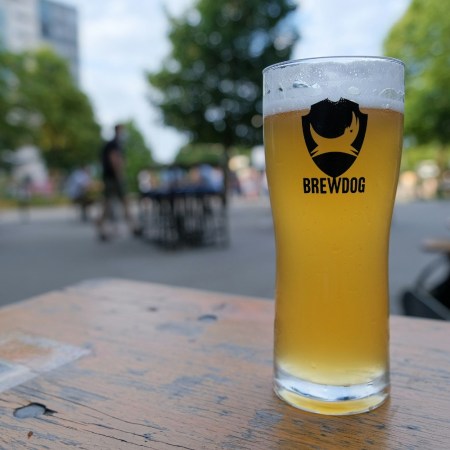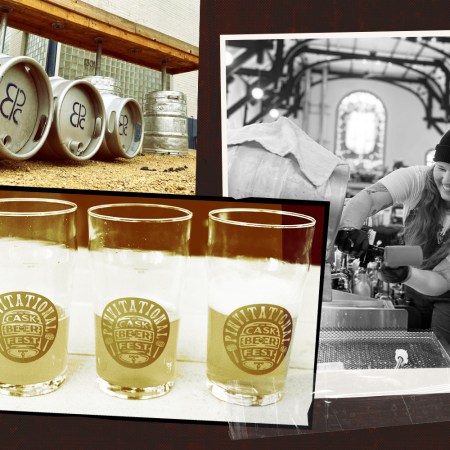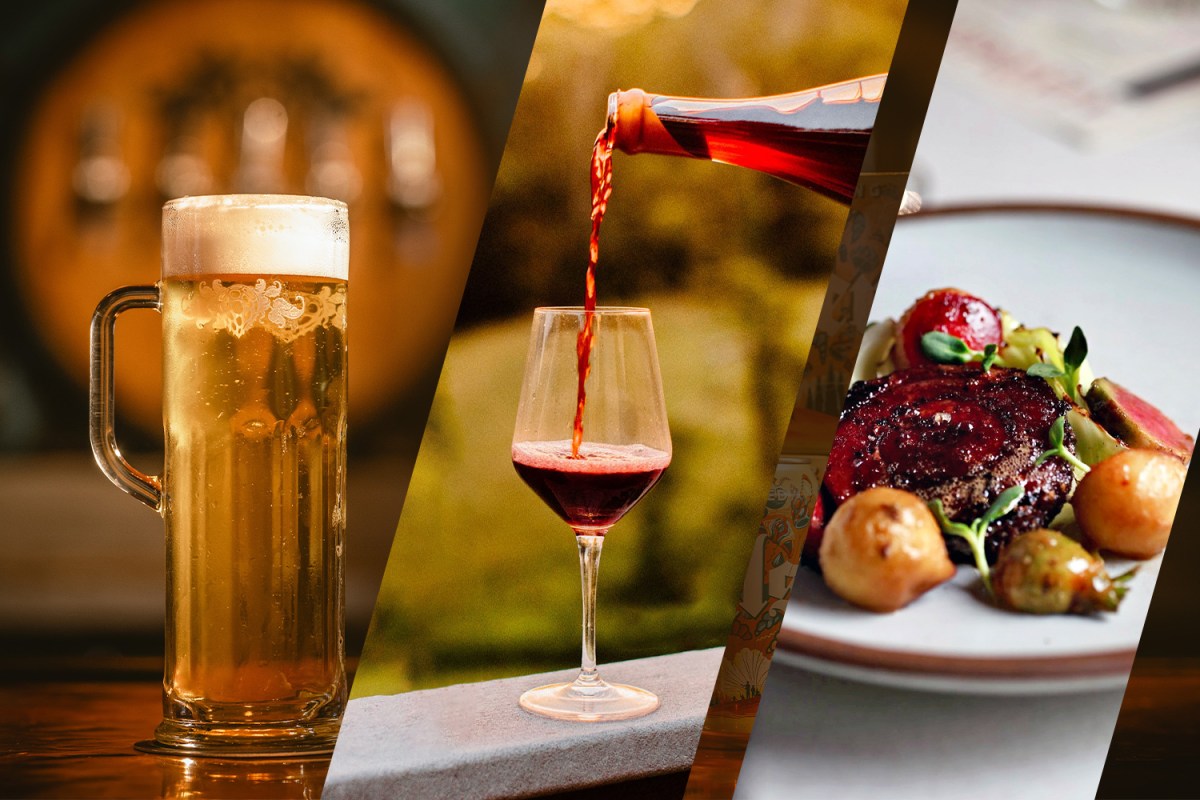
Photography courtesy of Wicked Weed Brewing
For a town of fewer than 100,000 people, Asheville, North Carolina, is punching far above its weight when it comes to food and drink. It’s difficult to walk down the street without stumbling upon some award-winning eatery, and with over 50 breweries in the city, you’ll find more craft beer per capita than just about anywhere else in the country.
But craft beer and fine dining not only coexisting, but working in tandem with one another — even collaborating with shared ingredients, fermentation techniques and menu pairings — is a much rarer occurrence. That you’ll find pretty much exclusively at Wicked Weed Brewing and Cultura, the brewery’s James Beard-nominated restaurant.
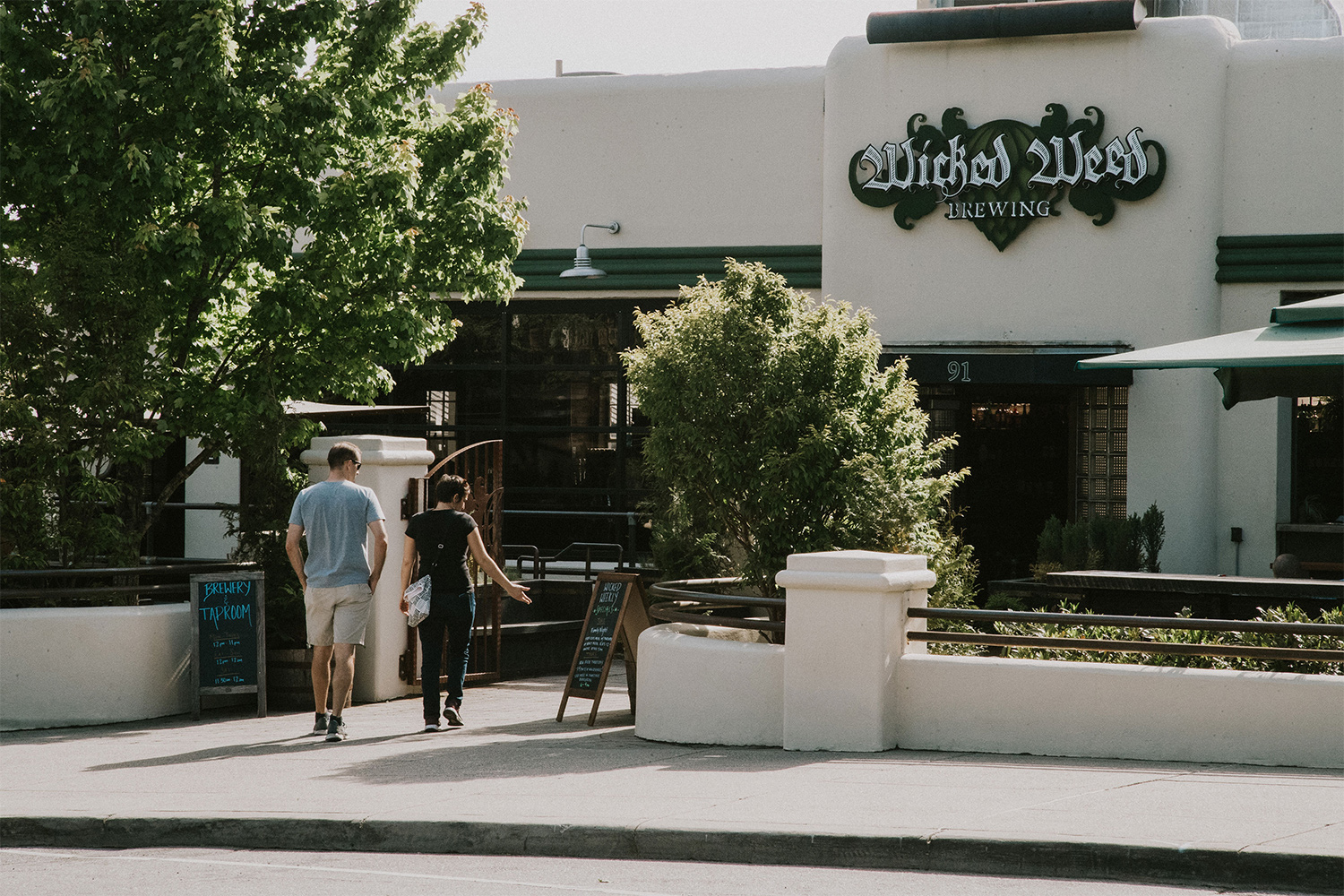
Since opening their original brewpub back in 2012, Wicked Weed — which is well-loved by craft beer fans for its Pernicious IPA and its extensive portfolio of sour beers — has expanded beyond just beer, pushing the boundaries of what a brewery is capable of by moving into cider, launching Vīdl, a line of natural wines, and offering diners a high-end tasting menu centered entirely around fermented ingredients at Cultura.
“I was going deeper through the sour program, fermentation, getting more into food and traveling and doing more events and things like that, and I looked at what we were doing and said, ‘Well, we have this opportunity, why can’t a craft brewery have a fine dining restaurant?,'” co-founder Walt Dickinson tells me over pints of the brand’s new pilsner at Wicked Weed West, the 50-barrel facility where the “clean” — i.e. not sour — side of production takes place. “Like, why can’t you get a Beard nomination? Why are there these rules and constructs? We know what good is. Let’s build that and create it.”
“Why do we do it? ‘Cause nobody told us we couldn’t,” he adds. “And it just seemed like the next thing to do. We wanted to just keep pushing ourselves to see what we were capable of.”
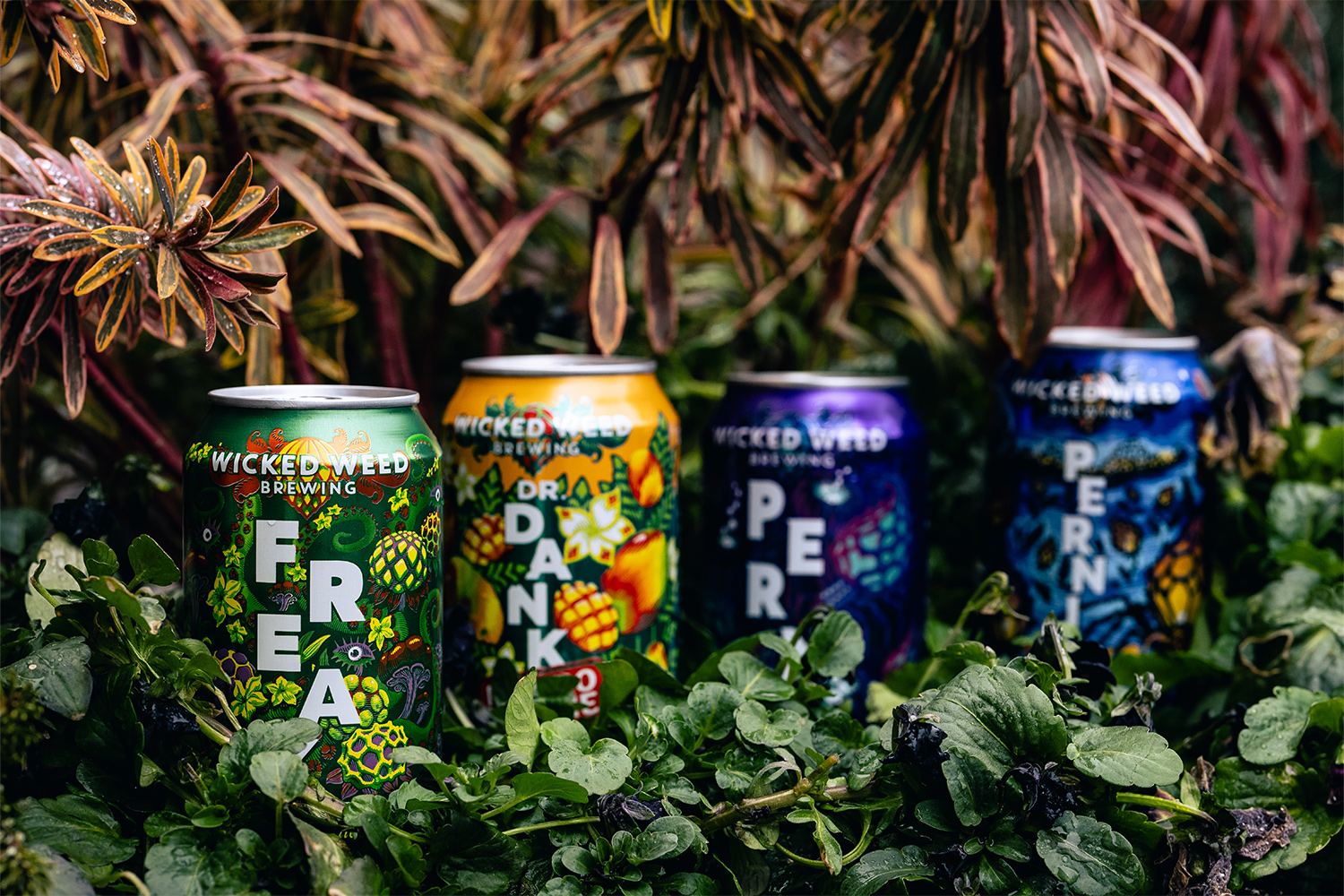

We want to reduce food waste. We want to preserve our mountain ways. All those things are important to us. We wanna support our local farmers and keep some of those traditions alive just in kind of a new light.
chef Eric Morris
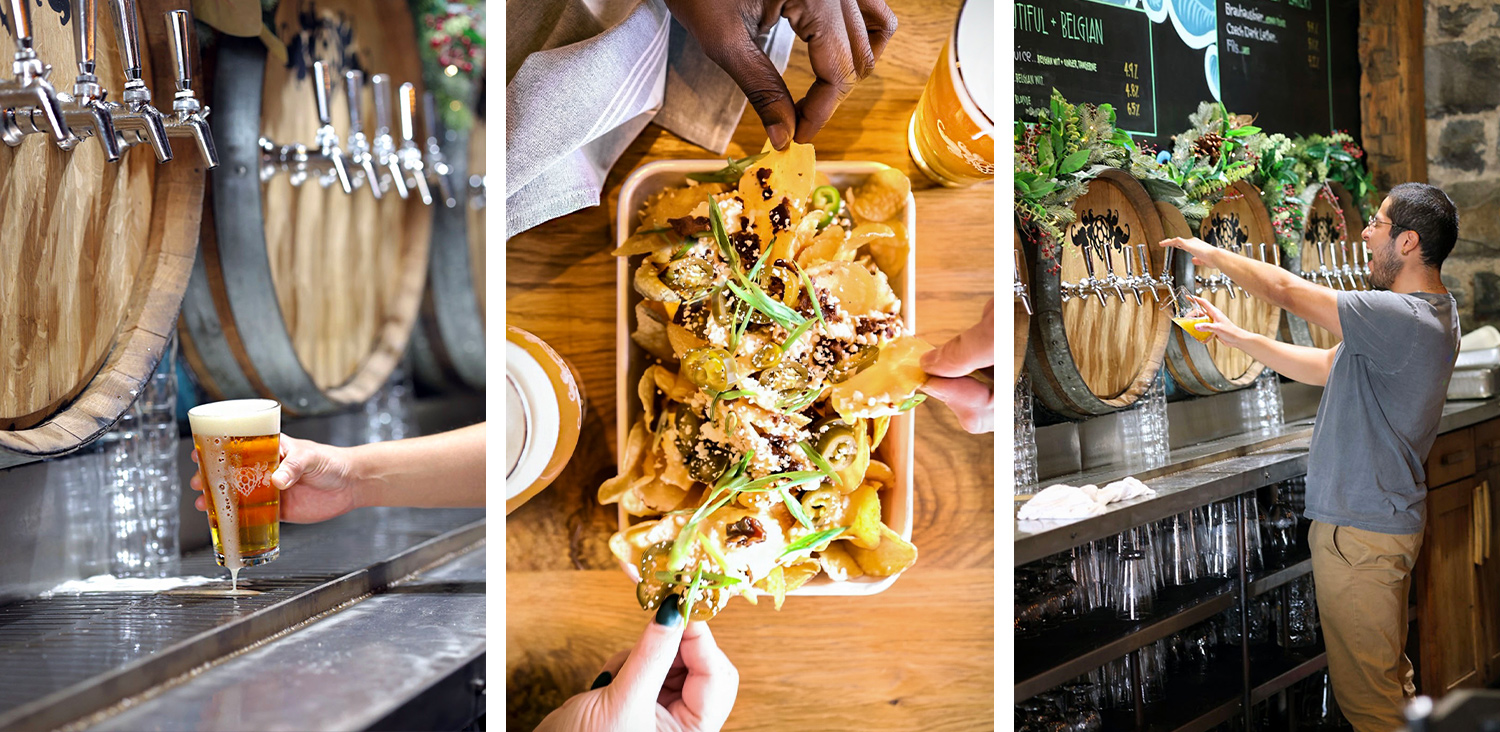
Of course, that’s not to say there haven’t been obstacles along the way. Back in 2017, Wicked Weed was purchased by Anheuser-Busch, and craft beer fans — a notoriously passionate bunch who are wary of Big Beer taking over their favorite brands — were outraged. The backlash was swift and brutal: the brewery was dropped from festival lineups and lost 50% of its distribution overnight.
“It was a moment,” Dickinson says with a laugh.
They knew news of the sale would be a hard pill to swallow for some Wicked Weed fans, but they were shocked that even close contacts refused to believe they’d be able to maintain the same quality brews they’d developed a reputation for under new ownership. “People had unrealistic expectations of what was going to happen to us,” brewmaster Joe Pawalek says. “We’ve been in the industry for awhile around here, and we know everybody around town. The things that people would ask us and things that people would say to us was like absolutely absurd. We’ve mended those relationships since. But it was a good while where people that I was friends with were like, ‘I hate you.'”
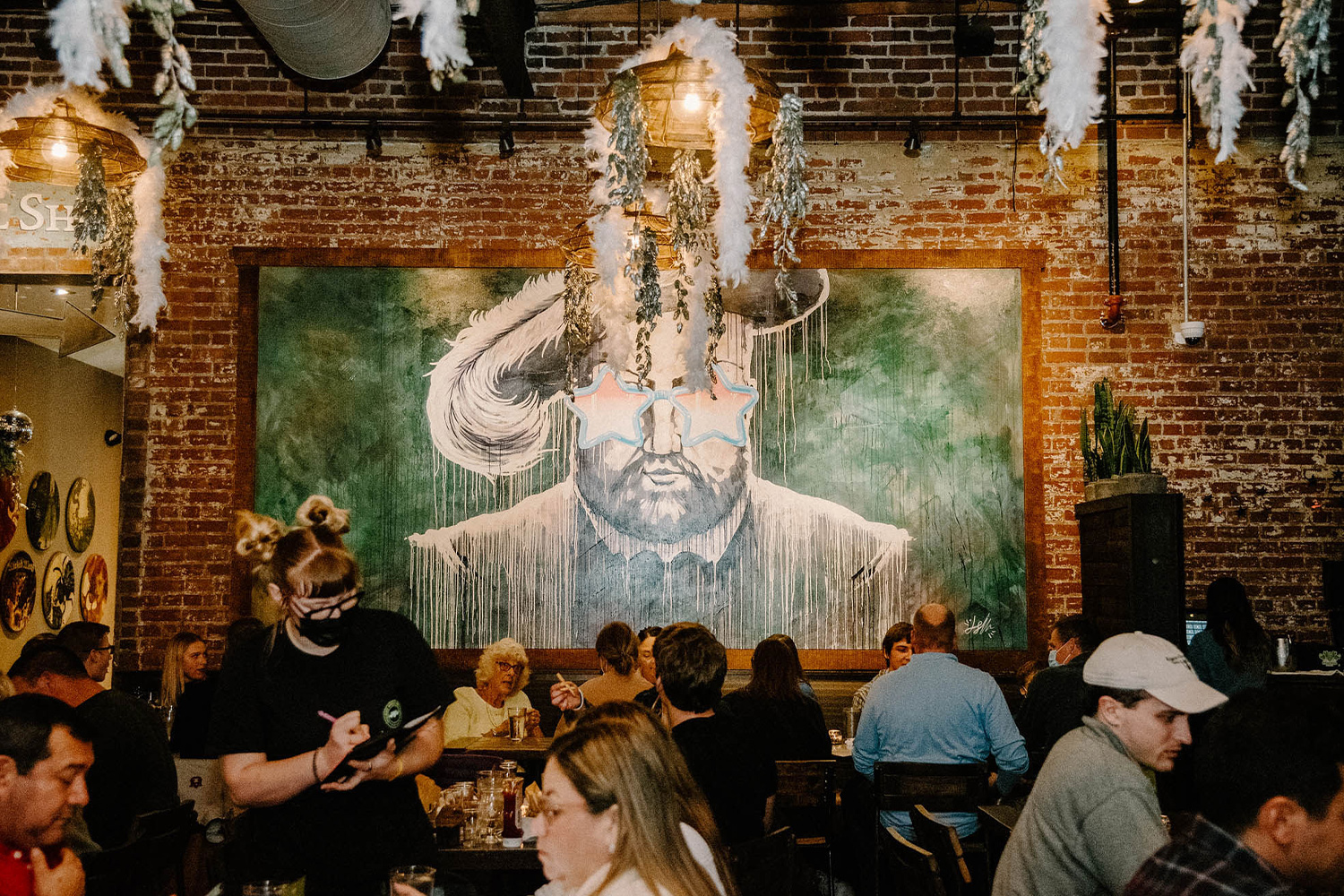
They came around eventually. As Dickinson puts it, the initial response was “just emotionality,” and Wicked Weed has since earned back the trust of consumers by simply continuing to put out the same fine products they always have. “As soon as they realized they weren’t gonna lose something they thought was special, now they don’t care,” he says. Wicked Weed was never going to turn into a mediocre macrobrew. If anything, they now have the resources to keep experimenting and educating people.
For Jen Currier, head of mixed culture programs at Wicked Weed and Vīdl Cellars, that means making sour beer as accessible as possible without sacrificing quality.
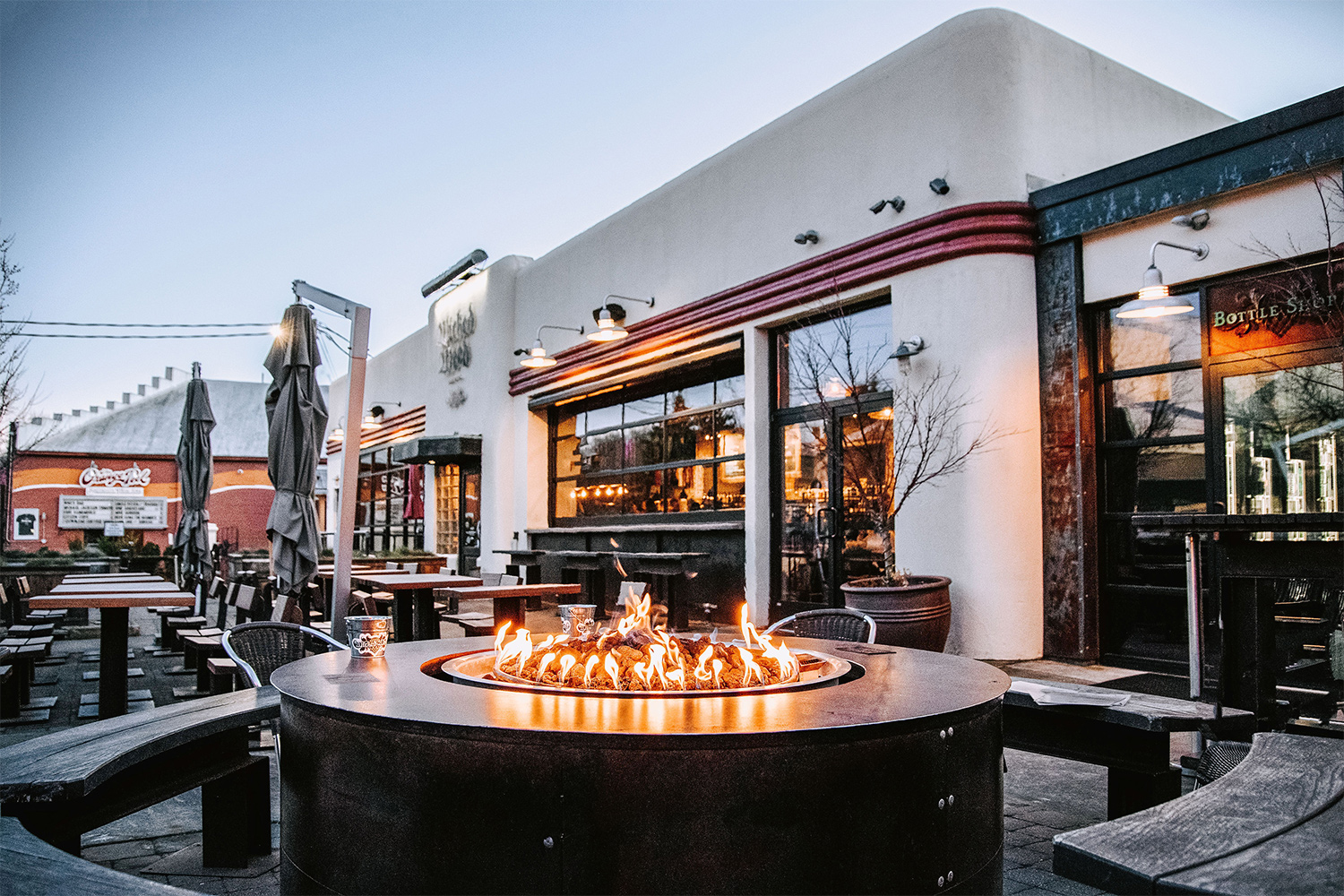
“Something that we’ve always kind of strived to do is we don’t want to turn people away from the category,” she explains. “We want all of our sours to be really balanced. I don’t want you to feel like you need to eat a tongue immediately when you have one of our beers. And all of our sours are now in larger format, 750 ml bottles. I think people will also see that compared to in 2015 when there were breweries packaging 750 ml mixed culture sour beer, and they were 40 bucks, 45 bucks a bottle. And most of ours are $25. It really is kind of our duty at Wicked Weed as a brewery that is really passionate about mixed culture beer and also owned by Anheuser-Busch. Our goal should be to bring as many people into sour beer as we can and then hope they like what we’re doing enough to go out and seek other people’s mixed culture, sour beer.”
That was the case for Currier herself, who was a fan of Wicked Weed’s sours long before she was a Wicked Weed employee. (She’s also, it’s worth pointing out, a woman in a major leadership role in the traditionally male-dominated craft beer industry. Nowadays, she says, “for every reputable mixed culture brewery, there’s a woman working there,” but when she first started at Wicked Weed, there was only one other female production employee, who worked in the lab. “I was their first chick brewer — or chick wood cellarman,” she says with a laugh.) And like many Wicked Weed staffers, she went to school for brewing, graduating from Asheville-Buncombe Technical Community College’s Brewing, Distillation and Fermentation program.
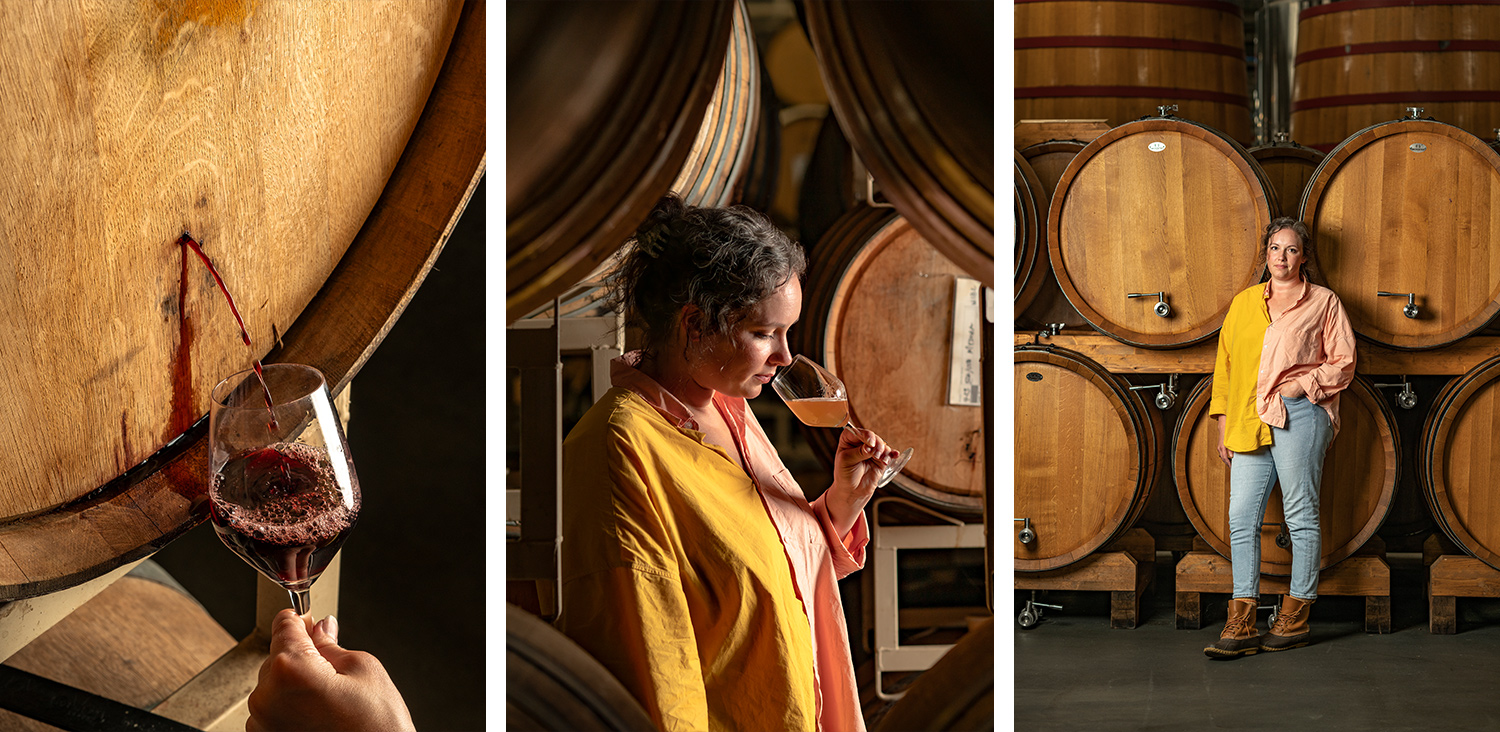
“If you look back at what the actual beer scene was like at that point, we probably had 30 breweries within city limits,” Currier says. “Which is a lot. But we’ve got a lot more now. And I do think that the first couple [graduating] classes, a lot of folks really did stay in this area and have been an incredible resource for all the breweries that are here. I know that we’ve gotten a ton of support — we, Wicked Weed, and also the A-B Tech Brewing program — just from that internship program. It really did kind of level up the brewing game for every brewery in this area when graduates started coming out of that program.”
It’s just one of the ways that Wicked Weed draws inspiration from and gives back to the Asheville community. When Cultura was forced to close its doors in 2020 because of the COVID-19 pandemic, the kitchen remained open, with Executive Chef Eric Morris and his team preparing and donating 5,000 meals a week for those in need. And since reopening, the restaurant remains devoted to sustainability and reducing waste by honoring the area’s culinary traditions.
“We want to be sustainable in Asheville,” Morris says. “We want to reduce food waste. We want to preserve our mountain ways. All those things are important to us. We wanna support our local farmers and keep some of those traditions alive just in kind of a new light. And so the more we know about how to ferment and apply those things, the more our region is growing. It’s like carrying that Appalachian food tradition into the 21st century. We’re taking old ways, and then we’re honoring them by keeping them alive but then also building on top of what we already know to do that.”
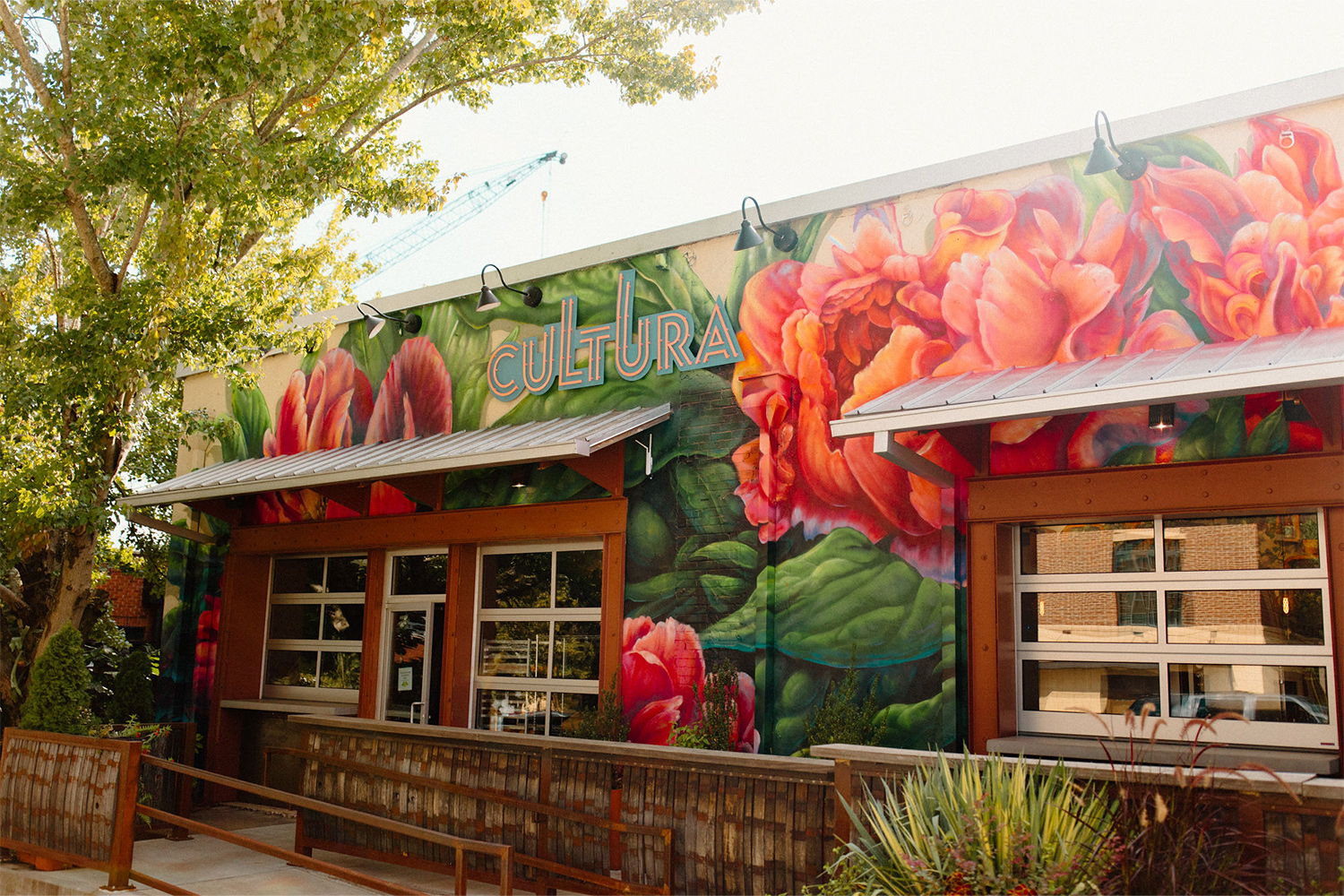
That’s evident in Cultura’s seven-course tasting menu (which will set you back $125 and includes favorites like blackened maple glazed boar belly with hakurei turnip, heirloom apples and braised cabbage and bluefin tuna with fermented jalapeño honey, puffed rice and jangajji), but it even extends to the restaurant’s decor, where framed grow boxes of mushrooms line the walls.
“You can see right there, those are oyster mushrooms,” Cultura’s General Manager Candice Dvoran says, gesturing to one particular box. “They’re gonna quadruple in size over the next couple of days, and then Eric will harvest them. And it’s cool because I didn’t know mushrooms. I didn’t know what sporing was or any of that. But when the mushrooms start sporing, they let this mist off, and so I’ll see them and I’ll be like, ‘Eric, I think it’s time to harvest. Anybody gonna chop these mushrooms down?'”
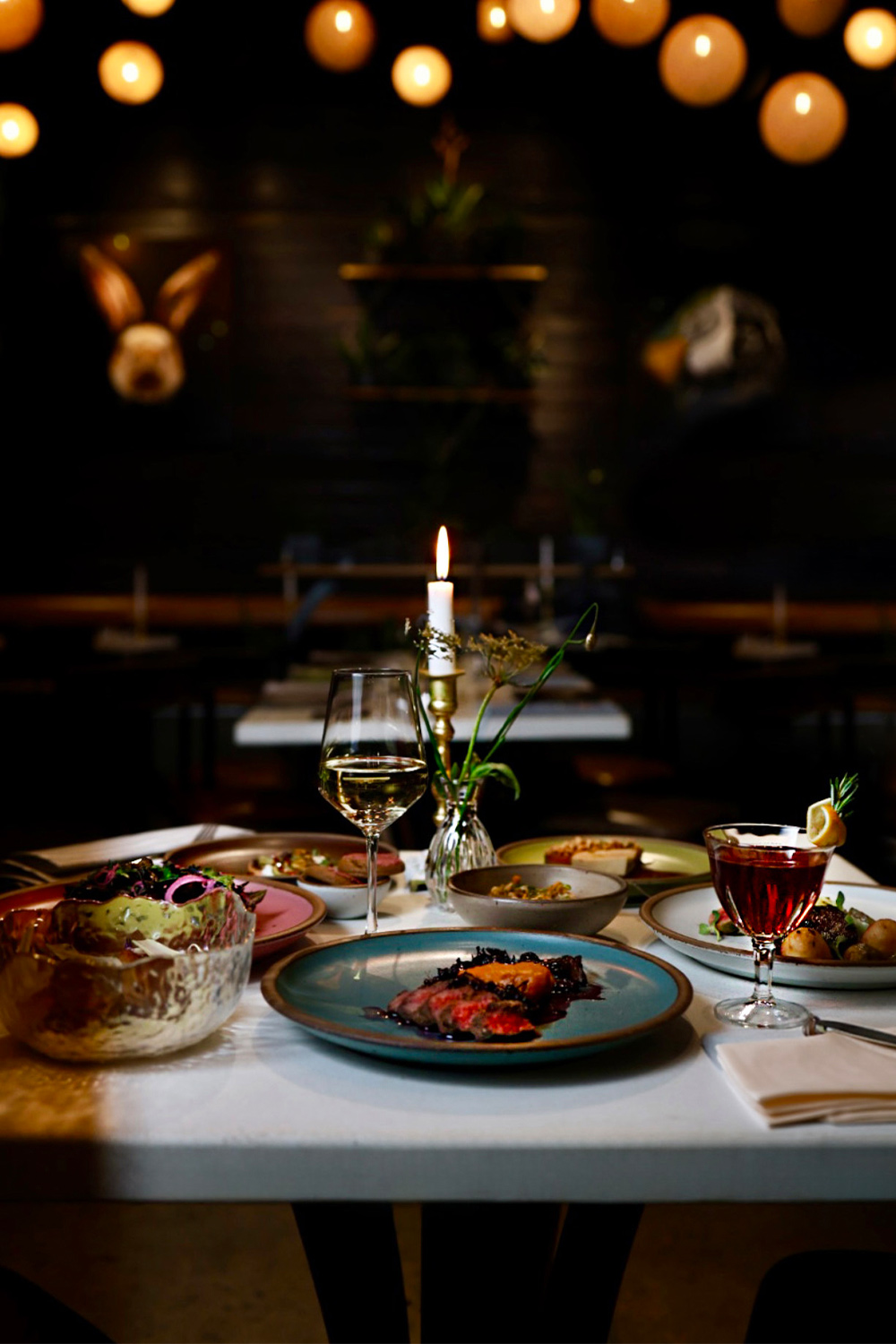
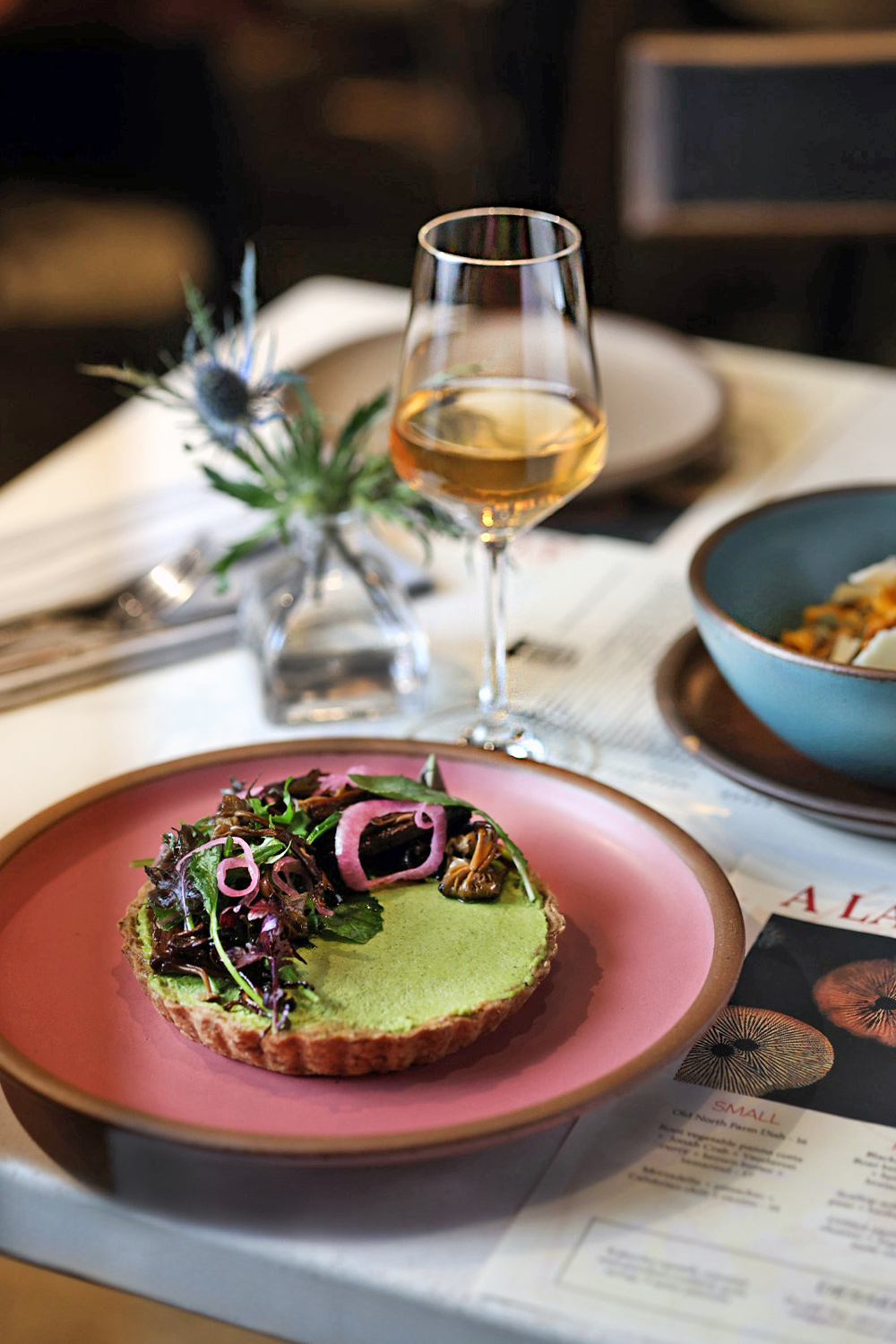
That no-waste mentality also allows Morris to collaborate with the brewery — and particularly the team at the Funkatorium, Wicked Weed’s mixed culture taproom located next door to Cultura — and experiment with leftover ingredients from the beer.
“He has exposure to, if he wants, hops or dry age hops or anything he wants to mess around with and vice versa,” Dvoran says. “Sometimes we’ll get a phone call. My husband works at clean production, and he’ll be like, ‘Hey, I’ve got 50 pounds of golden raisins. Do you want them?’ And I’ll say, ‘Eric, you want golden raisins?’ He says yeah, so it’s fermenting. I’m pickling ’em. Next thing I know, golden raisins are popping around everywhere.”
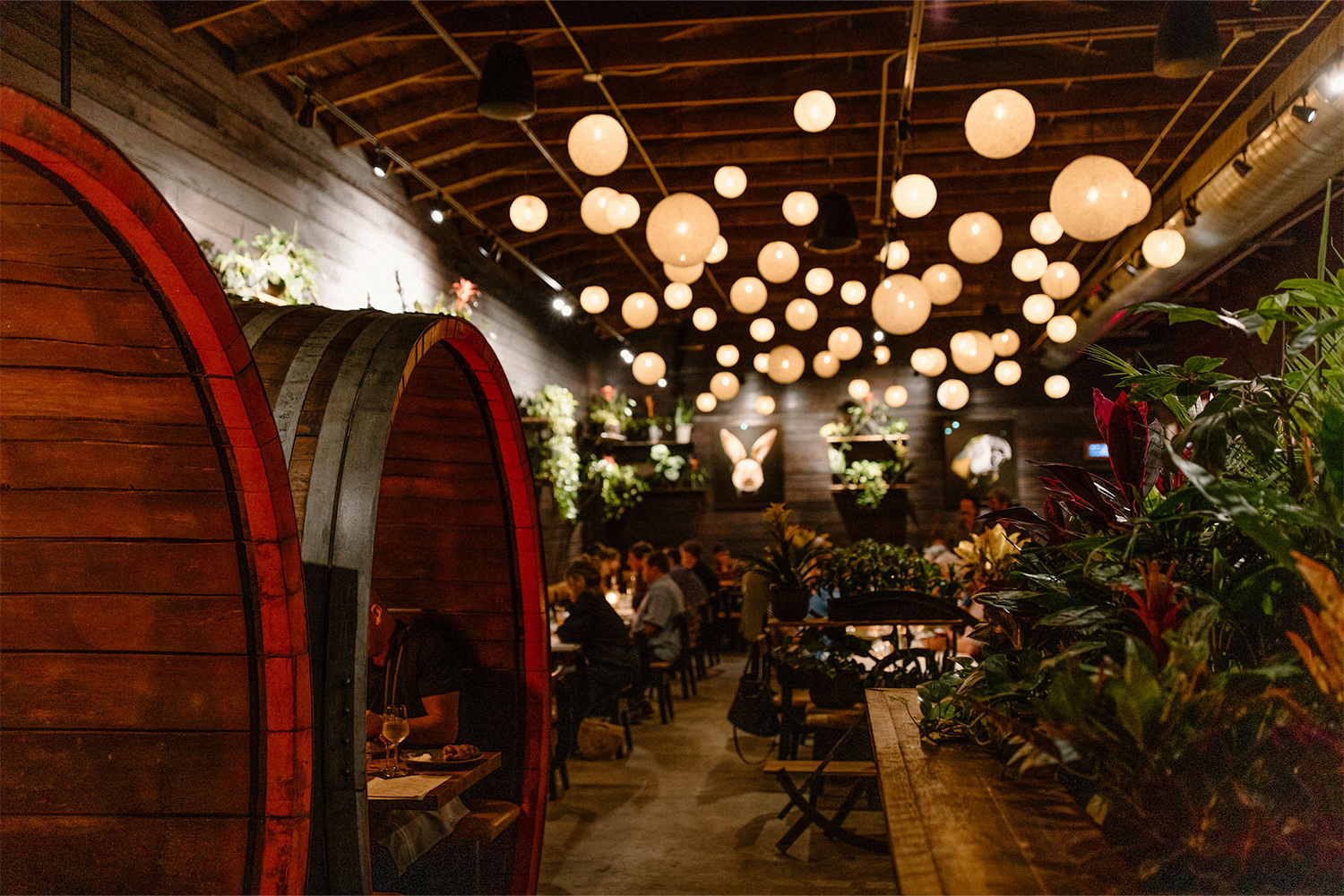
But just like the beers and wines sold next door are the result of meticulous attention to detail, everything that makes its way onto a plate at Cultura has a clear intention.
“When I was a cook in New York, the answer was always ‘yes, Chef,'” Morris says. “I didn’t want to be homeless in New York, so the answer was ‘yes, Chef.’ But then always in my head is like, but why? Why did we do it this way? ‘Cause this guy said so, but there has to be another reason behind that. What is the benefit of the technique? What does it provide to the dish? I find that to be hugely valuable. So everything on the menu incorporates an element of fermentation, but we try to do it in seamless ways. We’re not like, ‘I soured this’ or ‘I fermented this. You’re welcome.’ We try to use it in a way that actually accents a dish.”
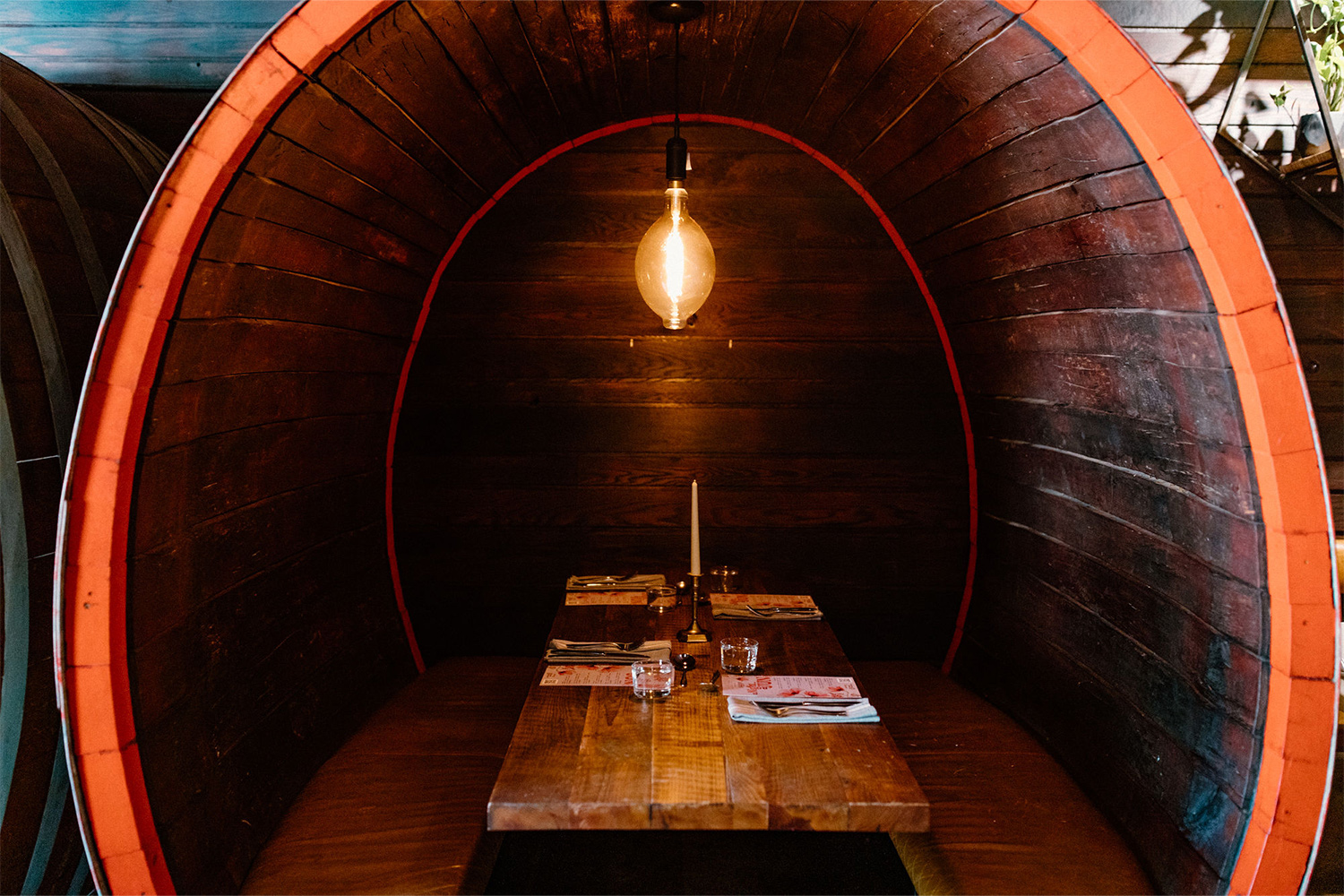
It’s the same devotion to craft that you’ll find at the brewery, which insists that its beer be shipped cold to preserve its intended flavor. They also keep an in-house design team on staff to create and build everything from tap handles and stools for the Funkatorium to beer labels and the psychedelic, hand-painted wall art that greets guests looking for Cultura’s bathrooms. Whether it’s a beer, a meal or a piece of art made from repurposed barrels, if it was made by Wicked Weed, chances are it was made by someone extremely knowledgeable and passionate about what they do.
“This brand has always been about this idea of more and exceptionality,” Dickinson says. “We’re gonna ask for you to keep it colder and make it fresher, and it’s gonna be better and we’re gonna make that promise to you because we put all that attention into it. So, yeah, when you come, the food should be better, and the beer lineup should be better and you should have some crazy fermentation experience and learn about fermentation in a new way. If we get people to see how magical all these things are and how beer ties into cider, ties into wine, ties into the fermentation in Eric’s kitchen, I think it tells a more magical story about the brand that’s fairly unforgettable.”
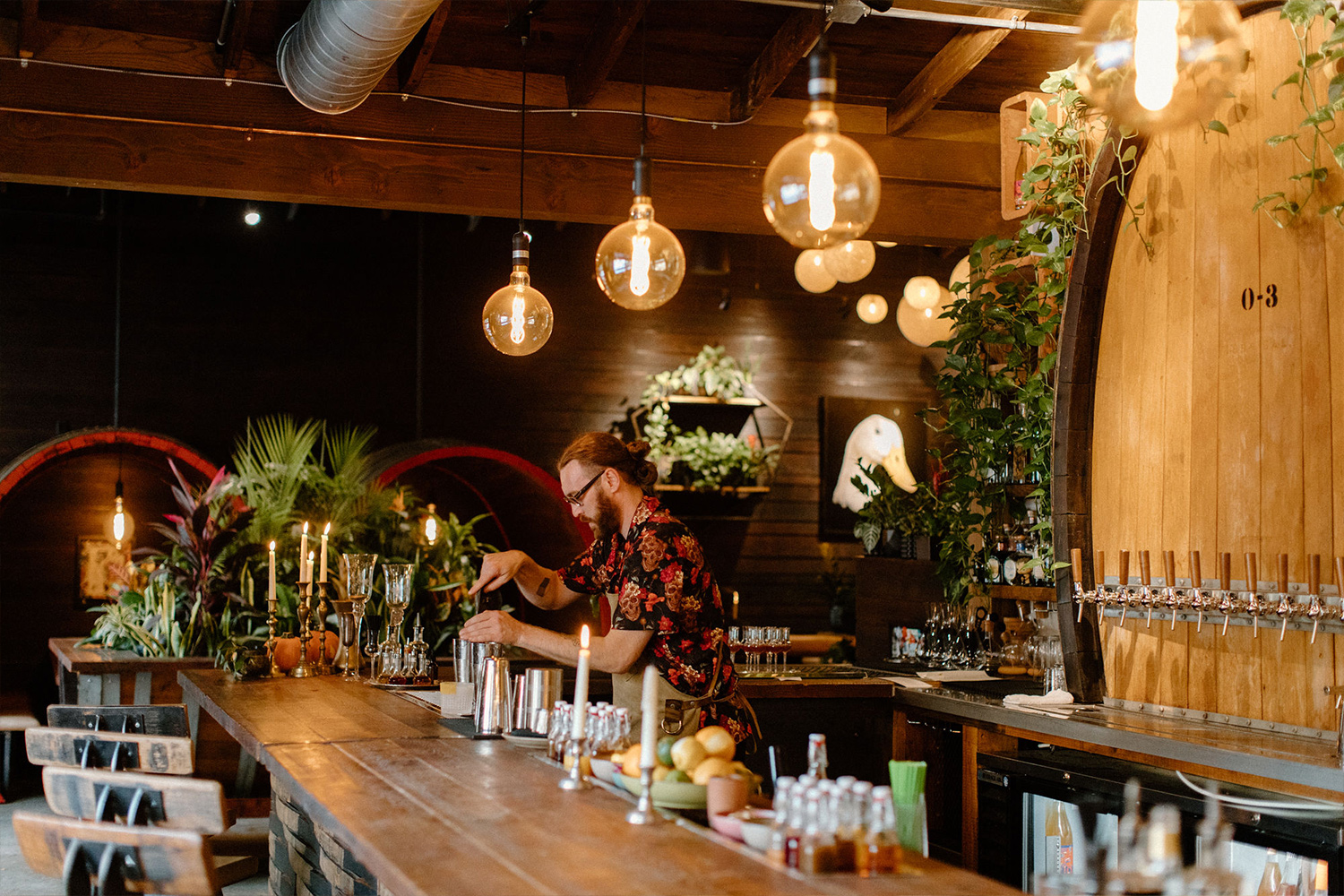
Every Thursday, our resident experts see to it that you’re up to date on the latest from the world of drinks. Trend reports, bottle reviews, cocktail recipes and more. Sign up for THE SPILL now.



